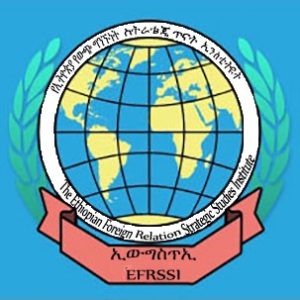- Stay Connected
Addis Ababa 21 January 2017 South Sudan features prominently in a new journal published in Ethiopia

DISCOURSE, a quarterly journal debating African issues and published by the Ethiopian Foreign Relations Strategic Studies Institute, was launched on 19 January 2017 at the National Museum in Addis Ababa.
Several articles of the maiden edition have shown how shifting alliances in the Horn of Africa and beyond have turned South Sudan into a destabilizing factor and accelerated its descent into chaos.
Yosief Ghebrehiwet, in his “Ethiopia and Eritrea: The Waiting Game”, details the consequences of the containment policy, or rather of the “waiting game” that is being played out between the Eritrean regime and the Ethiopian government for the last 18 years.
The writer points to South Sudan as one hotspot of destabilization that came into being during the waiting game. “The despot of Asmara was despairing when a stable South Sudan began to gravitate towards Ethiopia,” Yosief wrote.
He noted that the regime has been doing its utmost to keep South Sudan destabilized through an Eritrean-Sudanese-Egyptian alliance. “This alliance,” Yosief says, “may or may not converge in tactics, but surely does so in the final goal”.
The writer claims that one of the results of this destabilization has been a greater Egyptian influence in that area, with the South Sudanese government still hesitating to sign the Nile agreement of the upper Nile basin countries. He also says one or the other of the warring factions entertaining Egyptian help – be it military or diplomatic – at one time or another.
Dr. Mehari Taddele Maru, in an article titled “The UAE and Its Relations with the Horn of Africa” highlights the need for resolving the lingering conflicts in the Horn (between Ethiopia and Eritrea, Sudan and South Sudan, Djibouti and Eritrea) and the war in Yemen. This is necessary to ensure a secure neighborhood that would not serve as a ground for proxy wars between bigger rivals and a recruitment boon for religious extremists, Dr. Mehari wrote.
In his essay “Revamping Ethiopia’s Foreign Policy Strategy”, Goitom Gebreleul pushes for updating of Ethiopia’s Foreign Policy document. “Since the strategy was written, another major change has taken place in the region, namely, the establishment of a new state, South Sudan” Goitom said. He noted that Ethiopia is host to some 280,000 refugees from South Sudan due to the war that erupted in December 2013 and that it took the lead in facilitating the regional mediation. “Yet, a long-term and official Ethiopian policy on South Sudan is non-existent or not made public,” he stated.
Dr. Peter Pham of the Atlantic Council – an American think tank – in an interview with DISCOURSE says all the promise that South Sudan showed on Independence Day was not matched by deeds in the aftermath. “The key take away is,” Dr. Peter Pham said “wishful thinking cannot replace hard work”.
He added South Sudan is unfortunately not only Africa’s newest state but also the newest failed state.
Michael Minassie, a journalist who covered the South Sudan mediation in Addis Ababa, wrote that the quick move by regional leaders might have saved South Sudan from Rwanda-like genocide but the peace process that followed was bogged down by divergent interests of third parties and by its top-down approach.
He claims the early intervention of the mediators had one downside to it: they dived into the task without clearly mapping out the context of the conflict, all the internal and external actors (apart from the obvious ones) that may escalate or deescalate the conflict and without assessing local capacities for peace.
17 prominent scholars, writers and journalists from the Horn of Africa and the US have contributed to this 174-page maiden edition of DISCOURSE.
Ends
